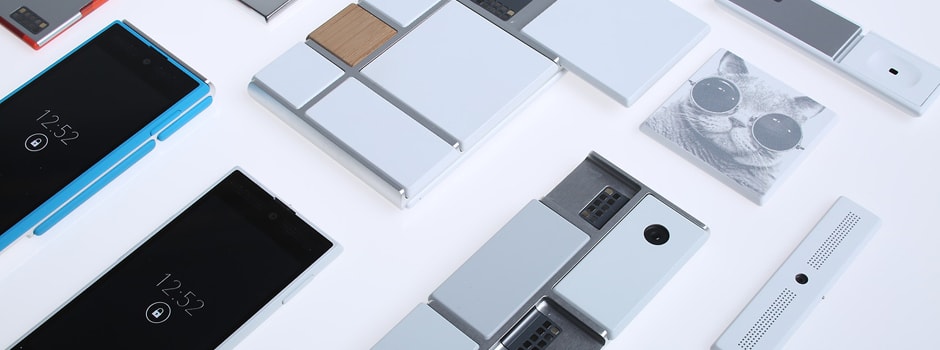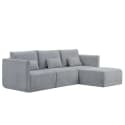Is Modular Mobile Computing More Than a Pipe Dream?
Modularity could be the next frontier in mobile tech.
 Credit:
Credit:
Recommendations are independently chosen by Reviewed's editors. Purchases made through the links below may earn us and our publishing partners a commission.
Modular mobile computing concepts crept out of design labs and onto this year's CES floor. Thanks in large part to the community developed by Netherlander Dave Hakkens and his team over at Phonebloks, savvier consumers are now dreaming of a world where upgrading a camera, swapping out a processor, or replacing the screen on their phone doesn't mean buying a whole new device.
Motorola Mobility—now owned by Google—recently announced its own modular and hackable phone concept, Project Ara, as a collaborative endeavor with the folks at Phonebloks.
"We’ve done deep technical work. [Hakkens] created a community. The power of open requires both. So we will be working on Project Ara in the open, engaging with the Phonebloks community throughout our development process," said Motorola's Paul Eremenko in a post on the company's official blog.
Motorola's announcement came in fall of 2013, but its booth at CES 2014 lacked any mention of Ara.
In contrast, Chinese manufacturer ZTE pushed its own Red Dot Design Award–winning proof-of-concept: the Eco-Mobius. Depending who you ask and which metrics you believe, ZTE is fourth or fifth worldwide in cell- and smartphone production. The company also produces carrier-branded phones, tablets, and mobile hotspots.
Both ZTE and Motorola are in the preliminary stages of their design process, working on ways to overcome the concept's many technical challenges. Able Chen, an industrial design engineer at ZTE, said CPU and GPU integration pose the biggest difficulties for the research and development team working on Eco-Mobius.
Taking these hurdles into consideration, ZTE Director of Strategic Marketing Andrew Elliot said the trend is toward modularity in the component manufacturing arena, and cross-compatibility between CDMA and GSM networks is very attractive to some.
An Interchangeable Future
On the plane ride to CES 2014, I replaced the rear-facing camera on my modern, non-modular smartphone. The component shipped overnight, for a total cost of $30, and arrived just in time for me to catch my flight. The 30,000-foot cell surgery was my third or fourth attempt at replacing a piece of hardware on a smartphone. With a helpful online guide, it went smoothly and I was able to completely fix my phone's unresponsive autofocus.
But if I'd had a modular phone, the process would have been absolutely trivial. In the world Google and ZTE imagine, I could simply unplug one camera module and replace it with another. But replacing broken components only scratches the surface of modularity's benefits; upgrades, personalization, and waste reduction are just some of the others.
Imagine a phone that would let a dedicated smartphone photographer switching between wide-angle, telephoto, and fisheye lens-sensor modules on the fly, whenever the need arose. Or how about a set of interchangeable processors—one that's blazing fast for gaming, and one that's slower but gets great battery life. Perhaps you're beginning to see the potential.
It's a beautiful dream, but realistically we're not sure about timeline, or even feasibility. And even if these phones become a reality, modularity implies a number of tradeoffs. Phones would likely be thicker and heavier, it would be difficult to make them weather-resistant, and you'd really be in a spot if you misplaced your phone's processor.
But if Phoneblok's 900,000 Thunderclap supporters—second only to a humanitarian campaign sponsored by Beyoncé—and interest from Google and ZTE are any indicator, these concepts might just be worth keeping at eye on.
ZTE's Chen certainly feels optimistic about their prospects. "Maybe one year," he said.

